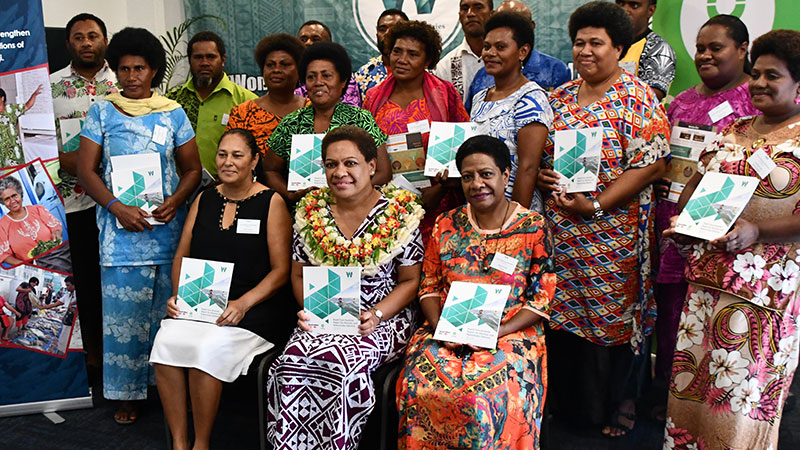
A report launched today by the Women in Fisheries Network, titled 'Rapid Care Analysis Report' highlighted that the burden of unpaid household work and lack of support hinders women’s ability to generate higher income.
The analysis was conducted to help the fisheries communities in the districts of Nakorotubu and Navolau in Ra to understand care work in their community and find practical solutions to problematic tasks and patterns of care.
Speaking at the launch, Women in Fisheries Network Chairperson Cherie Morris says on average, a woman spends more than double the amount of time on unpaid care work than a man in Navolau and almost double the time than a man in Nakorotubu.
Morris says the women of Nakorotubu District spend an average of 80 hours per week on unpaid care work which means that women have less time for leisure relative to a man.
She says some women highlighted that they enjoyed performing these unpaid care roles.
She says they used their findings in Ra to develop an advocacy strategy and key message which provides a guide for the strategic engagement of the key policymakers and donors.
While also speaking at the launch, Minister for Women Mereseini Vuniwaqa says the efforts and findings of organizations and networks of this nature are very crucial components of policy decision making in each sector of the Fijian economy.
Vuniwaqa says care work, which is predominantly provided by women and girls, is a central yet typically undervalued contributor to economies which includes essential daily activities of individuals such as cooking, cleaning, tending and fetching wood and water.
She says the fact is that no institution has more universal and personal significance to each of us than the family.
The Minister says gender differences in hours spent on unpaid domestic and care work stand at 39 hours for women and 14 hours for men in the age group of 30 to 34.
Vuniwaqa says the labour force participation in Fiji is 76.4 percent for men and 37.4 percent for Women and unemployment rates stand at 2.9 percent for men and 7.8 percent for women.
Vuniwaqa says she has no doubt that the Women in Fisheries Network is already on the right track for women in the fisheries sector in Fiji to be empowered, recognized, valued and participating in all aspects of sustainable fisheries.
Stay tuned for the latest news on our radio stations


